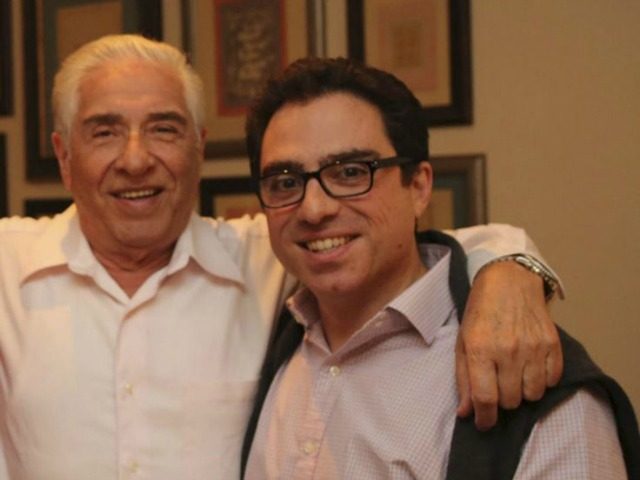On Sunday, Donald Trump said the Iranian regime’s ransom-for-hostages program will not continue if he becomes president.
“Well, Iran has done it again,” Trump wrote in a tweet. “Taken two of our people and asking for a fortune for their release. This doesn’t happen if I’m president!”
Well, Iran has done it again. Taken two of our people and asking for a fortune for their release. This doesn't happen if I'm president!
— Donald J. Trump (@realDonaldTrump) October 23, 2016
Trump’s message appeared to be in response to the taking of two more U.S. citizens by the Iranian regime and their intention to extract “many billions of dollars” in exchange for their release. Father and son, Baquer and Siamak Namazi, were sentenced to ten years in prison last Tuesday and slapped with a $4.8 million fine.
Siamak, 45, was detained on October 15, 2015, during a visit to Iran. His father, Baquer, 80, was arrested on February 22, 2016. He was apparently lured to Iran over his son’s detention, which led to his arrest. Baquer’s arrest took place just six weeks after the release of Washington Post reporter Jason Rezaian, Pastor Saeed Abedini, Marine veteran Amir Hekmati and the mysterious Nosratollah Khosravi-Roodsari.
Seven Iranians held in America’s prison system were also released in that exchange, at the Iranian regime’s request, and had pardons or charges against them dropped.
The dual U.S.-Iranian citizens were reportedly part of a ransom exchange in which hundreds of millions of dollars were delivered into the clutches of the Iranian Revolutionary Guard Corps (IRGC) in exchange for the Americans captives. The Iranian regime has sentenced at least six more hostages, including the Namazis, to ten-year prison terms in the past few months.
The move is largely seen as emboldening the regime and providing it with an incentive to take more Western hostages, as indicated by the arrest of Mr. Namazi and several others since that exchange.
Iran’s Mashregh News outlet, which appears to have ties to the IRGC, wrote on Tuesday that the Iranian regime will “have to wait and see,” and that “Americans will offer several billions of dollars for their release,” referring to the Namazis.
Trump has also insisted that if he becomes president, the IRGC will no longer be able to threaten American vessels without facing dire consequences. Speaking at a rally in Florida last month, Trump said, “With Iran, when they circle our beautiful destroyers with their little boats and they make gestures at our people that they shouldn’t be allowed to make, they will be shot out of the water.”
His remarks were in reference to the seizure of two U.S. Navy vessels by the IRGC in January and the subsequent detention of ten U.S. sailors who were on board those vessels located near Iran’s Farsi Island, which is home to an IRGC military base.
The high-seas spectacle took place just a few short days before Rezaian and the other U.S. hostages were released on January 16 and the United States and European nations lifted oil and financial sanctions on Iran, releasing about $100 billion of its assets in accordance with the nuclear Iran deal, otherwise known as the Joint-Comprehension Plan of Action (JCPOA).
The discourse surrounding provocations from Iran has been a consistent theme throughout the 2016 presidential race, and it is reminiscent of the 1980 presidential race between Jimmy Carter and Ronald Reagan in which the Iranian hostage crisis elevated Reagan’s lead and took him to the White House.
Carter’s deeply damaged legacy rests on the shoulders of his mishandling of the 1979 hostage crisis, which coincided with the revolution that overthrew Iran’s last Shah and replaced him with Muslim hardliner Ayatollah Ruhollah Khomeini.
Reagan beat Carter in a landslide, one year and two days after the 1979 Iranian hostage crisis began. He had started off his campaign trailing far behind Carter in the polls. But as November inched closer, he swept the election in a landslide, beating Carter by nearly ten percentage points. Current polls have Trump leading Clinton by two points, and some others have her six points ahead.
Clinton strongly endorsed the nuclear Iran deal and suggests she would take a “distrust and verify” approach to its enforcement, whereas Trump has been a vocal opponent of both the deal and the Iranian regime and has stated that he would either renegotiate or dismantle the deal altogether should he win the presidency.
Follow Adelle Nazarian on Twitter and Periscope @AdelleNaz.

COMMENTS
Please let us know if you're having issues with commenting.